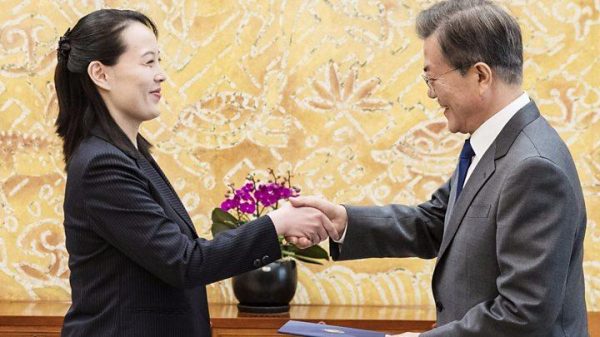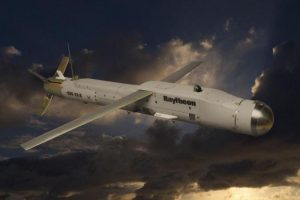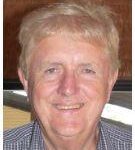Pyeongchang Winter Games: Ping-pong Diplomacy Revisited

By Denis Bright
Making America Great Again demands more strategic commitment by allies in the US Global Alliance to conventional foreign policies, US arms purchases and childish diplomatic antics like the failure of Vice President Pence to greet Kim Yo-jong at the Pyeongchang Games.
Australia is now deeply committed to such antics as a key member of the tripartite Washington-Canberra-Tokyo Military Axis (The New Axis) which serves the domestic political needs of the Trump Administration rather than the welfare of humanity.
In tandem with increased defence spending by the US to upgrade its nuclear and conventional arsenals, Australia has already committed to an arms-buying spree for $10 billion in new strategic purchases from US military-industrial complexes (ABC Online 28 December 2017).
In the traditions of the federal LNP leaders of old, it is back to an All the Way with the USA Policies. There are occasional welcome sparks of independence from Foreign Minister Julie Bishop.
British Prime Minister Theresa May had a more measured response to China’s Silk Road Diplomacy on her recent state visit to Beijing.
Peaceful economic diplomacy is not the flavour of 2018 on the Australian and US poles of The New Axis.
Our new military purchases embrace state of the art US defence technology. This includes the possibility of adding nuclear field weapons in the event of future military operations as all components are highly compatible.
ABC Online (28 December 2017) offered a sneak preview of the Raytheon GBU-53B drone with its capacity to deliver small diameter field bombs. Fox News Online (1  February 2018) noted the enhanced contracts for Lockheed Martin and Raytheon during the current tensions with the DPRK.
February 2018) noted the enhanced contracts for Lockheed Martin and Raytheon during the current tensions with the DPRK.
Earlier reports from ABC Online (2 September 2017) raised questions about a perceived lack of transparency in the purchase of remotely piloted Reaper drones from the US for use in potential regional conflicts.
Ironically, it was Israeli Aerospace Industries (IAI) that complained that Israel’s later versions of the MQ-9 Reaper drone had been sidelined in the latest buying spree to strengthen The New Axis.
Recent peace overtures on the Korean Peninsula are not welcome by lobbyists from the US industrial complexes and registered defence industry lobbyists from Australian firms with an inside knowledge of local political processes.
For the far-right foreign policy analysts from The New Axis, the significance of the Pyeongchang Olympics is easily dismissed as a strategic charm offensive by the DPRK.
China’s Ping-Pong Diplomacy of 1971 followed a similar unconventional route. Australia’s Prime Minister McMahon was still talking up the need for diplomatic ties with Taiwan while the US was moving to recognize Beijing. Only Opposition Leader Gough Whitlam correctly perceived that the time for change had arrived and made a successful visit to China with a delegation from the Labor Party well prior to the successful 1972 elections.
Decades later, Prime Minister Turnbull still clings onto the remnants of Cold War diplomacy to scare voters, particularly in marginal regional electorates where eyewitness television news services have such a high profile.
Speaking during a guided tour of Japan’s Narashimo Self-Defence Force Base outside Tokyo, Prime Minister Turnbull was at one with the hardline foreign policies of the Trump Administration (The Australian Online 18 January 2018):
“I think we all need to be very sober and clear-eyed about the current situation,” he said. “We have to recognise that the threat is growing. And if North Korea does not choose the path of engagement, of discussion, negotiations, then they themselves will trigger an option.”
Asked whether he agreed with these comments, Mr Turnbull did not repeat the statement but said military options should remain on the table.
“The point that he’s made, which I agree with, is that military options should remain on the table and he’s also said that we have to maintain the economic pressure from the sanctions and not to accept a sort of a lull from North Korea as an indication that they are going to change their ways.”
“The goal is the denuclearisation of the Korean Peninsula. That is manifestly in the interests of everybody in the region, not least of whom are the people of Korea, South and North, and that’s got to be the goal, and when the regimen shows real movement in that direction, I think that’s where negotiations can begin in earnest.
“I agree with what Rex Tillerson said on that score.”
The big setback to The New Axis was the failure of a Whitlamesque-styled government in South Korea to be completely obedient to President Trump. The causes of this dissent are complex.
Only Korean specialists could accurately decode the emergent challenges in relationships between South Korea and the Trump Administration. Here are some possibilities to promote discussion on the rapidly unfolding Korean scenarios.
The Democratic Party’s victory in South Korean elections on 10 May 2017 was a convincing and decisive victory for a new centre-left government. Millions of South Koreans remain opposed to the installation of new THAAD missile defence systems and demonstrated their opposition in the streets of the largest urban centres.
First-strike retaliatory responses could be launched from US defence bases near Korean major cities with the protection of the new defence systems. Military action against North Korea would involve a horrific death toll in South Korea rather than in Canberra, Tokyo or Washington. Even the use of lower yielding nuclear field weapons would cause havoc and radiation sickness in cities like Seoul, just a 30-minute drive away from the fortified DMZ.
There is lingering resentment over the extent of mass destruction from the last Korean War (1950-53) during the Rhee Administration (1948-60). This government had stoked up political tensions in South Korea before and after the conflict. Far from being an exemplary democratic leader, South Korea’s President Rhee had authorised human rights abuses to enjoy the privileges of a virtual one-party state under US protection.
President Syngman Rhee (1875-1965) was finally ousted during the student-led April Revolution in 1960. He was air-lifted to a sanctuary in the US as protesters converged on the presidential Blue House to enjoy five short years in Hawaii with Austrian-born wife Franziska Donner (1900-92). The couple reportedly offered a diamond ring to the CIA pilot who had plucked them from harm’s way.
Another complicating factor is antagonism across the Korean Peninsula to Japan’s annexation. The Korean Empire became a Protectorate of Japan from 1905. It was incorporated into the Japanese Empire between 1910 and 1945.
Related to this occupation period was forced prostitution as comfort slaves for the Japanese army and civil administrators. President Moon Jae-in was dissatisfied with the levels of financial compensation negotiated from the Abe Government in 2015 by the previous Conservative government in South Korea.
President Rhee also tolerated the presence of brothels for US servicemen (Joseph Yi in The Japan Times Online 5 February 2018):
South Korean media rarely discusses the well-documented finding that post-1945 South Korean governments also encouraged and supervised brothels for American soldiers or the allegation that South Korean troops patronized local women in Vietnam. No Korean publisher has translated Soh’s English-language book.
A Seoul court partially censored Park’s Korean-language book and fined her 90 million won ($74,000) for defaming survivors; prosecutors requested a three-year prison sentence. A foreign (Korean-American) professor was sharply criticized for discussing the Soh book in his politic science courses. The university investigated activist charges that he supported Japanese war crimes, and he was pressured to write a letter of apology.
The censored discourse reflects an underlying, authoritarian-nationalist perspective in which Koreans portray themselves as innocent victims and dissenting voices to the anti-Japanese narrative undermine South Korea’s moral power.
An alternative, liberal-nationalist perspective would combine, deep love of one’s country with thoughtful, nuanced analysis of a complex past. Censorship undermines the informed citizenry necessary for democratic politics and prudent policymaking. Critical, thoughtful public discourse that transcends simple victimhood narratives would serve both nations’ strategic interests and universal justice.
Plans within The New Axis for the militarization of the Indo-Pacific Basin were dealt a severe blow by the unexpected accord on the Korean Peninsula to prepare for the Winter Olympics at Pyeongchang. For President Trump talk of peace was a cue to resume another propaganda offensive by ramping up new sanctions against the DPRK after the Pyeongchang Games.
Concessions from the DPRK at this strategic time should re-open land transport and sea routes which can invigorate both parts of the Korean Peninsula. All East Asian countries, including Japan, would benefit from these initiatives. Diplomatic snubs like Vice President Pence’s failure to acknowledge the presence of Kim Yo-jong in an adjacent seat at the opening ceremony in Pyeongchang and the US boycott of the ceremonial dinner are childish antics.
Better examples of diplomatic finesse are available in the current crisis on the Korean Peninsula.
Even the far-right Abe Government continues to attend and supports forums in both China and Russia to advance these Silk Road and Far Eastern Transport Initiatives. Both Russia and Japan support the construction of land transport routes from the Russian Far East to Hokkaido in Japan through the island of Sakhalin.
From far-off Britain, at one terminus on the Silk Road to Europe, Prime Minister Theresa May has left China with billions in new trade deals to offer a new bright spot in the post-Brexit era.
Compare this with the return of the Cold War mentality towards the Continental Powers of East Asia in Australian political rhetoric (Tom Mcllroy in Financial Review Online 31 January 2018):
The domestic spy agency says the country is facing its greatest ever threat from espionage and foreign interference, exceeding levels experienced during the Cold War.
Australian Security Intelligence Organisation deputy director-general Peter Vickery told a parliamentary committee considering the government’s proposed new foreign interference and espionage laws there is little understanding of the threats from foreign governments and other organisations among the public, despite the successful recruitment of Australian officials in recent years.
Australians should be excited about the new windows of opportunity for our region from the chance arrival of the Pyeongchang Olympics and the possibility of real peace negotiations on the Korean Peninsula, almost 65 years after the end of the Korean War.
Progressive Australians seek alternatives to such dated Eve of Destruction Scenarios once lampooned in Barry McGuire’s anti-war music from the Vietnam War era.
Young Malcolm Turnbull was breezing his way towards high school at the time, later working towards a Rhodes Scholarship at Sydney University and trying out his activism as an independent political commentator.
Our national leaders will soon line up to welcome President Trump’s appointment of Admiral Harry Harris as US Ambassador to Australia. Let the conventional strategic wisdom roll on politely to deter the quest for a peace settlement of the Korean War.
Perhaps the Ambassador can be reminded that many Australians have a dissenting viewpoint and oppose the return of Cold War rhetoric as US bases expand their operations in South Korea to counter the diplomatic initiatives of President Moon Jae-in (The Guardian Online 10 February 2018).
Harris regards North Korea as the biggest threat to security in Asia, calling for diplomacy backed by the military power to “bring Kim Jong-un to his senses; not to his knees” in pursuit of peaceful denuclearisation of the Korean peninsula.
He was born in Yokosuka, Japan, in 1956, where his father was a US Navy chief petty officer. His mother was Japanese. Harris grew up in Crossville, Tennessee and Pensacola, Florida, where he attended local public schools.
There are no clean nuclear weapons. Test-fired weapons from the DPRK are no worse or better than the next brand. The batteries of US nuclear weapons across the Indo Pacific Region from the Red Sea to the Arctic and beyond do not provide a convincing case that President Trump is committed to denuclearization on land, at sea or in the heavens.
Will the defenders of Australian sovereignty come up with an alternative to this permanent state of preparation for war as an instrument of foreign policy by joining New Zealand, Nepal, Bangladesh, Malaysia, Indonesia, Kiribati, Palau, the Philippines, Samoa, Tuvalu, Vanuatu, Vietnam, the Holy See (Vatican) and the State of Palestine to sign the 2017 UN Treaty on the Prohibition of Nuclear Weapons which is a mere negotiating agenda.
Not one fully signed up member of the US global alliance network has dared to support this essential road to peace in our times. Cheers to Austria, Ireland, Liechtenstein, San Marino and the Holy See (Vatican) for showing us the way from Europe. Where are the others, including progressive centre-left European governments in Portugal, Malta and Greece?
It is the surely the responsibility of progressive delegates at Labor National Conference in Adelaide in July 2018 to offer Ambassador Harris a practical exercise in the democratic denuclearization by foreshadowing support for the Treaty by a Labor Government after the next election.

Denis Bright (pictured) is a registered teacher and a member of the Media, Entertainment and Arts Alliance (MEAA). Denis has recent postgraduate qualifications in journalism, public policy and international relations. He is interested in advancing pragmatic public policies that are compatible with contemporary globalization.









14 comments
Login here Register here-
David Bruce
-
Tessa
-
James Robo
-
Sandy
-
Chris
-
Lalnama
-
Rubio@Coast
-
Rubio@Coast
-
diannaart
-
Paul
-
Rubio@Coast
-
Chris
-
Maree
-
Tom
Return to home pageDoesn’t seem like the “Adults” are in charge! Now it seems like a pissing contest to see who has the best, the biggest and the brightest toys?
When can I take out an NZ citizenship to opt out of the nuclear arms race?
Thanks for the insights into the politics of our new US ambassador, Denis. Will Australians be threatened by a political coup if they dare to support our ANZAC colleagues in New Zealand by signing the UN peace treaty?
Why is the Liberal party so scared of Donald Trump and his fierce new Ambassador to Australia?
By signing the United Nations treaty to prohibit the use of nuclear weapons our neighbors in New Zealand , Indonesia, Fiji and Vanuatu are more committed to peace than Malcolm Turnbull .
Admiral Ambassador Harry Harris has almost two first names, is from Crossville and was in charge for at least 2 naval accidents
“The plot is coarsely put together, like the comic books or tabloids that feed U.S. President Donald Trumps endless fantasies in lieu of facts. First, there are the senior commanders, admirals Harry Harris and Scott Swift – names that could have come from the creators of Clark Kent or Peter Parker (Superman and Spider-Man), or maybe Mickey Mouse, Bugs Bunny or David Duke, ex-grand wizard of the Ku Klux Klan.
Next is a political-naval hero, the third in a maritime dynasty, locked in a struggle with the villain. The ship that commemorates his ancestors is then involved in a fatal accident, which raises doubts about the fitness of the entire army said villain commands. ”
https://www.haaretz.com/us-news/.premium-one-embarrassing-accident-too-many-for-the-u-s-navy-1.5445757
Errm LOL….
In the spirit of Peace and Harmony
Excellent article,Denis, we know so little of what really goes on in world politics and the reasons for the political games
Please Australia make our own decisions based on our own views for peace in the world and not continue to be a lap dog to the USA
Why NATO opposes denuclearization: https://theaimn.com/pyeongchang-winter-games-ping-pong-diplomacy-revisited/#comments
But Australia like NZ and Ireland is no appendage of the US Alliance
Why NATO opposes global denuclearisation: https://www.nato.int/docu/review/2017/Also-in-2017/nuclear-weapons-ban-treaty-scepticism-abolition/EN/index.htm
Australians do not need to obey such edicts.
Thank you Dennis and thank you AIM for this article – really helps to fill in a few more pieces in the USA/Korea/Australia puzzle. Although no surprise, especially with regard to Trump & Turnbull.
If he wins the next election, what will Bill Shorten do?
(On a personal aside I do not envy Bill, particularly if he is sincere about leading Australia rather than using Australia. His to-do list is as long as it is fraught).
Thanks Denis.
Interesting article! Any effort for peace must be pursued relentlessly!
It is interesting to consider what approach Bill Shortern would take on this matter also.
I like diannaart’s comment. Change is not easy to implement in either domestic and foreign policies. News services have their audience rating games.The federal LNP is no friend of public broadcasting. The frequency of advertisements on SBS is very annoying and the ABC is not adequately funded. Both networks have been changed by political appointments with a commitment to the status quo rather than public debate in both news services and popular entertainment.
“The visiting British Defence Secretary has also confirmed a Royal Navy warship will next month sail from Australia through the South China Sea to assert navigation rights in waters claimed by Beijing.”
” but said it was possible his nation could one day conduct joint patrols with Australia in the disputed waterways.”
http://www.abc.net.au/news/2018-02-13/british-defence-secretary-warns-australia-to-remain-vigilant/9425166
Denis, thank you for your interesting article on the political situation on the Korean Peninsula.
It’s not surprising that South Africa was one of the first countries to sign the UN treaty to Prohibit all nuclear weapons. Under Apartheid, South Africa tested a nuclear bomb in 1979 off Prince Edward Island. It built up a small stock-pile of nuclear weapons with support from US uranium enrichment technology and support from Israel which has never signed the Nuclear Test Ban Treaty.